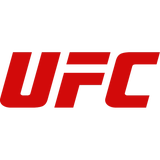
What was he thinking? Anderson Silva's absurd doping defense falls flat

Like many athletes before him, former UFC champion Anderson Silva hired a likely high-priced attorney to help defend himself Thursday at an athletic commission (in this case, Nevada's) disciplinary hearing. And like many fighters before him, "The Spider" went in with poorly supported defense claims, a poor understanding of commission disciplinary history and an overall lack of preparation.
After following commission disciplinary proceedings for at least a decade, one of the strangest common occurrences I've noticed is fighters hiring lawyers who seem not to have a clue as to how help their clients in this setting. Time and again, fighters are represented by big-name lawyers who present some variation on the same, strained defenses for failed banned-substance tests that have almost always failed at commission hearings.
Silva and his team presented a convoluted, incredible defense as to why he failed multiple drug tests leading up to and immediately following UFC 183 in January, and then offered little to nothing in the way of supporting evidence for their story. Leaving aside the many comical-sounding goofs, including the commission accidentally having Salt-N-Pepa's "Let's Talk About Sex" and other anthems of yore pumped into the hearing room (really), and stilted translation work, Silva and his legal team's defense argument was perhaps the worst part of the entire, ridiculous episode.
If Silva and his team had taken even a cursory look at the Nevada commission's disciplinary decision record with regard to banned substances, they could have guessed that the "my friend gave me a tainted supplement or medicine" excuse doesn't usually result in leniency. More often than not, the commission has maintained that fighters are always responsible for what they put in their own bodies.
Still, Silva and his lawyer either unnecessarily concocted or revealed an embarrassing story of the fighter needing help with sexual performance, then turning to a newly made friend who procured a male-enhancement drug for him. Turns out, according to Silva and his team, that the medicine probably contained the banned steroids that he was popped for.
Perhaps it did. That likely wouldn't have absolved Silva of any guilt, however, in the eyes of the commission.
Silva and his crack team took it one step further and attempted to "bolster" the story by saying that the drug procured by his new friend isn't available in the United States or his native Brazil, but rather was gotten in Thailand. Somehow, Silva's team thought that saying that he took a mystery drug from a friend that isn't even legal in Brazil and had to be procured in Southeast Asia would make his case stronger.
Perhaps Silva's lawyer thought that there is Nevada statute bylaw that exempts banned-substance use for licensed combatants if said drugs are purchased in Thailand. There is not.
Silva and his representatives also brought in a drug expert to testify that he had examined Silva's sex pills and that he believed the positive steroid tests could have come from taking it.
Again, that likely wouldn't matter at all to the commission. But it may still have been a good idea for Silva's expert scientific witness to bring any documentation of the drug examination that was said to have occurred.

Anderson Silva says he never knowingly took anabolic steroids, but also admits that he didn't do anything to learn about a mystery drug from Thailand given to him by a friend before UFC 183.
And that is why I'm not very upset by the notion that Silva took performance-enhancing drugs, banned or not. If the use of these substances can someday be fairly controlled or eliminated, that’s a different story. (It is worth nothing that we don't have any particular reason to be believe that is possible, though.) But as it stands, combat sports are filled with doping of various kinds. It is just part of competing at a high level, like it or not.
